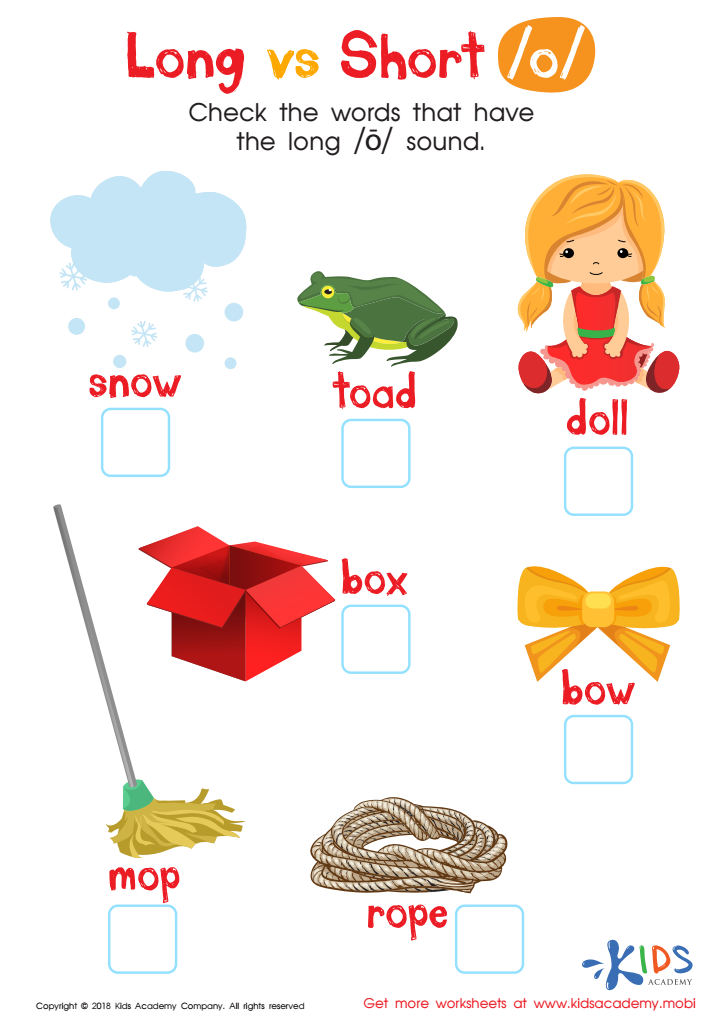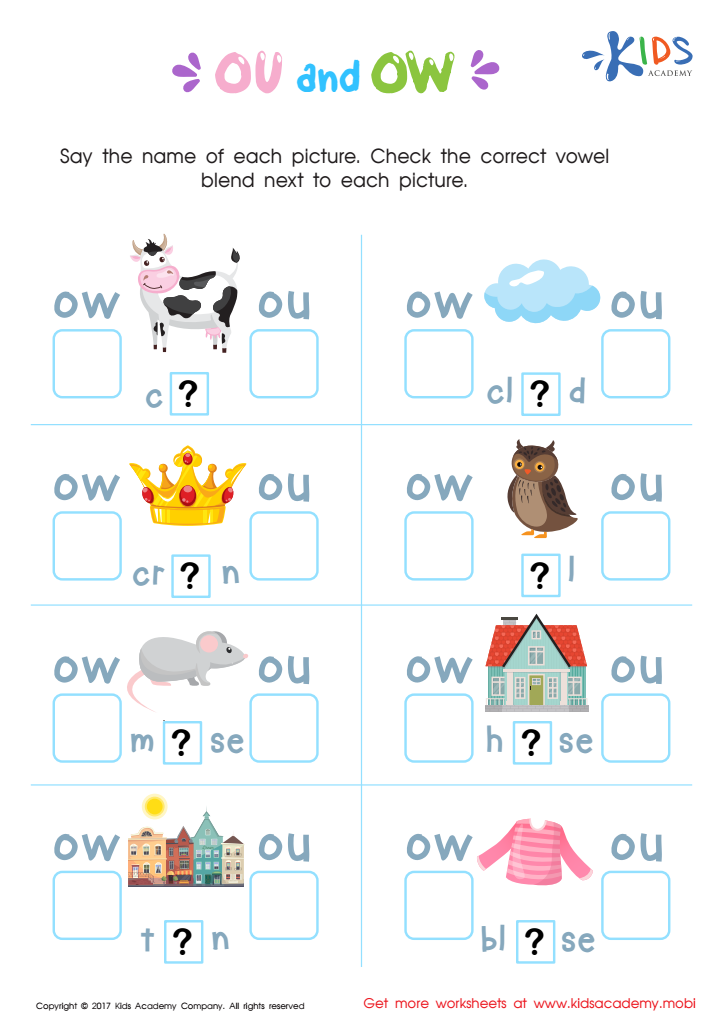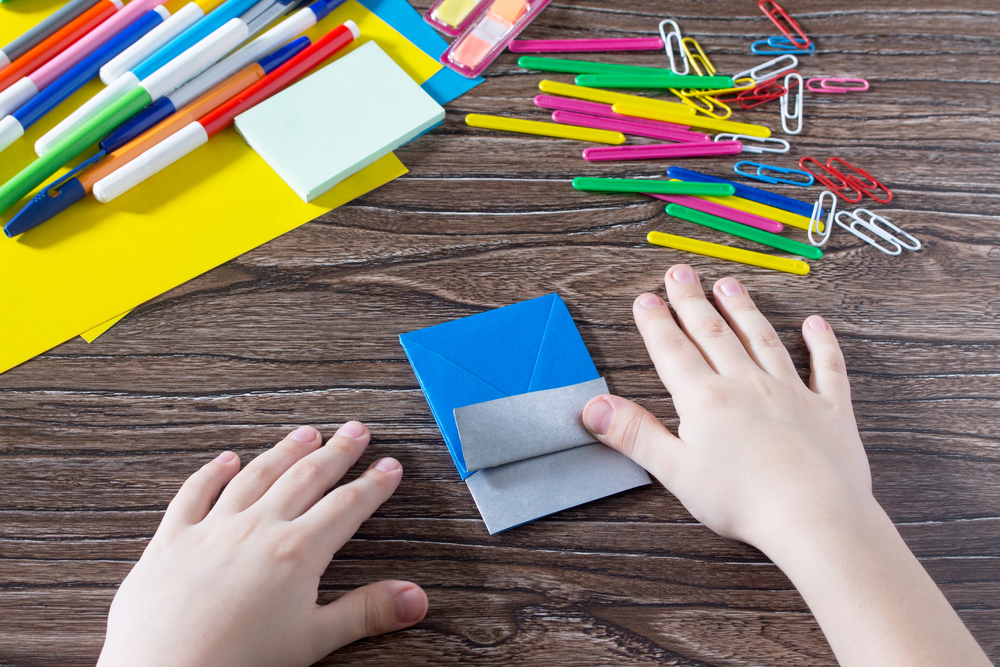Sound differentiation Normal Worksheets for Ages 5-7
3 filtered results
-
From - To
Discover our expertly designed Sound Differentiation Worksheets, specifically crafted for children aged 5 to 7. These engaging resources enhance phonemic awareness, enabling young learners to identify and differentiate various sounds in words. Interactive and fun, these worksheets incorporate visually stimulating exercises that foster early reading skills. Ideal for classroom settings or at-home learning, our materials support students in developing critical listening skills and boost their confidence in language arts. Tailored to align with educational standards, our sound differentiation activities ensure that kids are both entertained and educated. Equip your young learners for reading success with our carefully curated worksheets today!


Long vs Short O Reading Worksheet


Long and Short Vowel Sentences: Assessment Worksheet


OU and OW Words Worksheet
Sound differentiation plays a crucial role in the early literacy development of children aged 5-7. During these formative years, children's ability to recognize and produce different sounds, also known as phonemic awareness, significantly influences their reading and writing skills. Parents and teachers should care about this because sound differentiation helps children decode words, develop vocabulary, and become confident readers.
When children can differentiate between sounds, they are better equipped to notice rhymes, syllables, and the individual phonemes in words. These skills are fundamental for effective reading and spelling. Engaging in sound differentiation activities—such as phonics games, singing songs, and practicing tongue twisters—can make learning fun and interactive, enhancing children's motivation and retention.
Additionally, fostering sound differentiation early helps identify and address potential learning challenges, allowing for timely interventions. When children struggle with phonemic awareness, they are more likely to face difficulties in literacy, which can lead to decreased self-esteem and a lack of interest in learning.
Ultimately, sound differentiation is an essential building block in a child's educational journey, promoting not only academic success but also a lifelong love for reading and learning. Parents and teachers play a vital role in nurturing these crucial skills during ages 5-7.
 Assign to My Students
Assign to My Students



.jpg)











